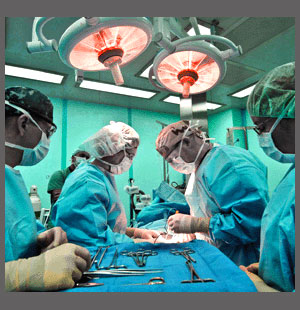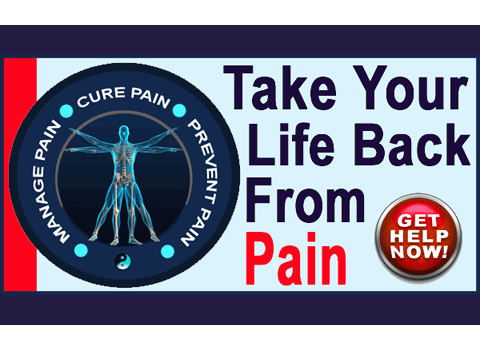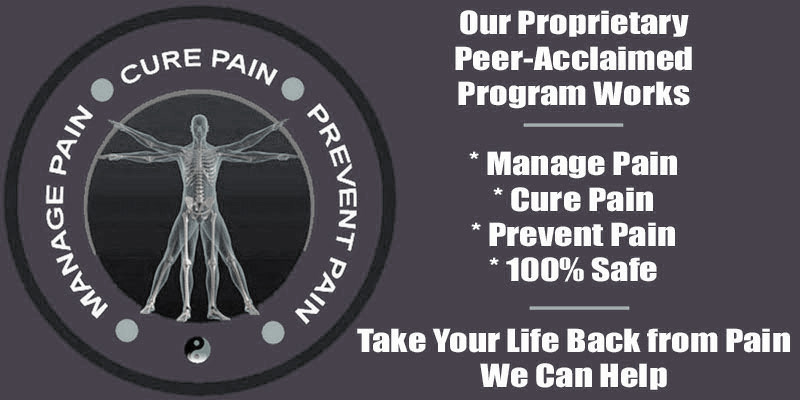
Which type of spinal stenosis doctor should you see? There are many options for primary caregivers and patients can be easily confused as to whom to trust with their diagnosis, monitoring and treatment needs. Orthopedists, neurologists, physical therapists and chiropractors all might specialize in spinal stenosis care, further confounding the issue by introducing the question of traditional versus complementary medical providers as head of the treatment team.
Choosing the right kind of doctor is a crucial part of finding effective relief from any health problem. When it comes to such a potentially serious and life-disrupting condition like spinal stenosis, this decision is more important than ever. Make sure to choose wisely or face the negative consequences of your selection, including increased pain, possible disability and maybe even premature death.
This objective patient guide provides expert guidance in choosing a primary caregiver for a spinal stenosis issue. We will analyze the options for specialists and provide evidence-based recommendations on finding the best doctor for your needs.
Traditional Spinal Stenosis Doctors
Western medical doctors and osteopaths constitute the most common and widely accepted specialists when it comes to spinal stenosis care providers. However, there are still several options on which type of doctor will best serve the needs of their patients:
Orthopedists are skeletal specialists and many concentrate on the spine as their practice focus. Orthopedists are experts in arthritis and joint problems, which most often factor into the origin of spinal stenosis. Orthopedists might recommend physical therapy, drugs or injections for conservative care and will either recommend or directly perform surgery (orthopedic surgeons) as curative interventions.
Neurologists are nerve experts and many of the best focus on the components of the central nervous system, including the spinal cord and nerves. Neurologists follow very similar treatment agendas to orthopedists, often prescribing drug therapies, physical therapy or injections as modalities that can relieve pain and help patients to live better while avoiding surgery. Neurologists will also recommend or actually perform surgery themselves (neurosurgeons) for patients who require invasive care or those who insist on pursuing only curative practices, rather than symptomatic treatment.
Physical therapists generally do not take the lead in spinal stenosis case, but some might. PTs and PTAs will offer support services and noninvasive therapy for stenosis patients, including exercises, dietary consultations and pharmaceutical prescribing. Physical therapists are not surgeons and therefore do not have the ability to offer any type of curative care to stenosis sufferers.
Other Doctors Who Treat Spinal Stenosis
Besides traditional physicians, there are a few other options for patients to consider when searching for a doctor to diagnose and treat spinal stenosis. These caregivers can be found in the complementary and alternative medical sectors and do not have western medical educations. Here are the types of care providers who might fit the bill for patients with an alternative treatment mindset:
Chiropractors are spinal specialists and have a widely accepted education as healers. It seems very logical for some patients to choose a chiropractor as their lead spinal stenosis doctor, especially if they already have a long-term professional relationship with one for other back or neck pain concerns. Chiropractors do not treat with drugs or surgery, which is a very good thing in most cases. Instead, chiropractors utilize spinal manipulation, sometimes combined with nutritional counseling, exercises and possibly spinal decompression. For spinal stenosis care, chiropractors are very limited in what they can achieve, especially when it comes to providing a cure for actual central or foraminal canal narrowing that has compressed a nerve root or the spinal cord.
Doctors of Chinese Medicine often treat patients for everything and tend to attract patients with very traditional beliefs as to what constitutes effective care. Traditional Chinese Medicine also tends to avoid surgery and pharmaceutical drugs, but instead relies on energy work, such as acupressure and acupuncture combined with exercise, diet and nutritional supplementation. Doctors of TCM have only a small hope of providing symptomatic relief from spinal stenosis pain, and no hope at all of resolving neurological symptoms like foot drop, sexual dysfunction or incontinence caused by spinal cord or spinal nerve compression.
In similar fashion to TCM, Ayurveda is a South Asian healing system that tends to treat patients similarly regardless of what is wrong with them. Ayurvedic practitioners might have credible educational backgrounds, but many are simply nothing more than folk healers with no formal schooling. Ayurveda embraces dietary treatment and exercise for all manner of health issues, but also tends to recommend long periods of bed rest for many problems. While some methods might provide a small measure of relief for some patients with strong belief systems, Ayurveda is greatly limited in what it can achieve when it comes to diagnosing, curing or even effectually treating spinal stenosis.
Spinal Stenosis Doctor Recommendations
We do not wish to undermine the credibility of any care provider or insult any healthcare focus. Every type of healing art has its proper place in the world, but unfortunately some attempt to treat spinal stenosis patients inappropriately and against the logical facts of the condition.
Doctors and TCM and Ayurveda will likely not even be able to diagnose spinal stenosis, since this relies on western medical imaging. They certainly will not be able to provide any more than minor symptomatic relief at the very best. Neither has any hope of curing spinal stenosis.
Chiropractors and physical therapists are knowledgeable care providers and fully understand the mechanics of the spine. Furthermore, most have access to advanced imaging that can positively identify spinal stenosis. The types of conservative care provided might be beneficial for general health, but tend to fall short hen it comes to actually treating the most common causes of stenosis. If the patient suffers from disc-related stenosis and the chiropractor happens to offer nonsurgical spinal decompression, then there is hope for very good treatment results. However, for all other scenarios, we tend to advise against using a chiropractor or PT as a primary care provider for stenosis sufferers.
So, we come down to the choice between orthopedists and neurologists. Which is better suited for diagnosing and treating stenosis? Well, the spinal conditions that actually cause stenosis fall into the focus of orthopedists, but the effects of stenosis are managed by neurologists. A great solution would be to find a practice that has one or each type of doctor, since they tend to work together, especially if they are spinal specialists and both surgeons. If this is not possible, we would suggest that a neurologist offers the very best care, since they are truly experts at knowing when the neurological tissues have reached the extent of compression where surgery might be the best treatment path.
Spinal Stenosis > Spinal Stenosis Treatment > Spinal Stenosis Doctor





